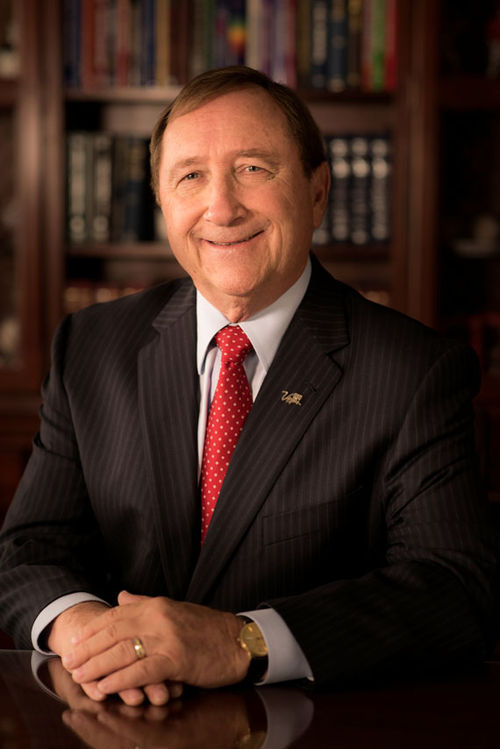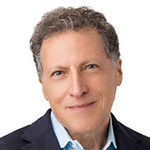“It’s been 16 years since I was diagnosed with colon cancer. Sixteen years. You know that initial shock when the doctor walks in and says, ‘Yeah, cancer’?”
Rossi Ralenkotter, the greatest destination marketer the travel industry has ever known, was recently telling me about the diagnosis that would claim his life. He died on Oct. 10.
He wanted to make a point: “Yeah, cancer is a shock. But I took it as a challenge: I’ll still get up every morning, and I’m going to get my four at bats.”
Rossi loved baseball, and “four at bats” is a perfect inspirational metaphor: You may have struck out on your previous three times at the plate, but stepping into the batters’ box again, the potential to hit a home run has not diminished.
And boy, did Rossi ever hit a grand slam at the Las Vegas Convention and Visitors Authority (LVCVA) when, in 2003, he worked with ad agency R&R Partners to create the “What happens here, stays here” campaign.

Ralenkotter retired from the Las Vegas Convention and Visitors Authority in 2018 after 45 years with the organization. Source: Courtesy of LVCVA Archive
Over his career, Rossi successfully leveraged his obsession with research, his natural gifts as a marketer and his genuine love for Las Vegas. He created the LVCVA’s initial methodology for analyzing visitation when, in 1973, he was hired to establish a research department. He took advantage of his at bats to help the organization evolve, in his words, from “a sales marketing company to a marketing company to a brand marketing company.”
“Nothing was developed that didn’t have strong research behind it,” he said. “That’s what put us ahead of everybody else.”
And, in 2003, he found the holy grail: “adult freedom,” his research told him, was the common thread that lured domestic and foreign travelers, gamblers, foodies, conventioneers and entertainment mavens alike to the destination.
“We have customers who keep a section in their closet for clothes that they only wear in Las Vegas, because you could do what you want here, be who you want to be,” he said. “You could be James Bond, have breakfast at 2 o’clock in the afternoon and dinner at 4 in the morning.”
The “What happens here” campaign was not only one of the most successful marketing efforts in travel but could hold its own in any vertical.
Rossi told me that the rollout of the campaign was not without pushback from some of the hotels that fund the LVCVA. A few wanted hospitality brand names prominent in shots of the Strip.
“We had to convince them that this was about what our customers perceive the brand to be and, no, we’re not going to show hotel marquees,” he said.
(Rossi also let me in on a secret about the ads: Not all were filmed in Las Vegas.)
I had known Rossi for about a third of the 45 years he worked at the LVCVA before he retired in 2018. He had just been promoted to CEO of the organization when we met (it was the year after “What happens here” launched). Over the years, we frequently discussed LVCVA initiatives, but when we spoke shortly before he passed away, he also talked about his childhood and how his affection for Las Vegas began early.
His father was a croupier, initially at the Sands but eventually moving to the Mirage. In other words, Rossi grew up as Las Vegas — reflected in the Sands’ ownership — moved from crime bosses (Meyer Lansky, et al.) to entertainers (Frank Sinatra) to tycoons (Howard Hughes) to think-big convention organizers (Sheldon Adelson). And when his father moved to the Mirage, he worked for the man who would send Vegas in a completely new direction (Steve Wynn).
From early youth, Rossi had a ringside seat to observe the eternally shape-shifting city. And, he recalled, he sat in some other pretty impressive ringside seats.
“I was fortunate,” he said. “I was able to see the Rat Pack when they did two shows a night, seven nights a week. And show rooms in those days held only about 450 people. When I was in high school, I saw the Beatles perform. Twice. Elvis, he was unbelievable. His was really the first Las Vegas residency.”
And Rossi could get an audience with travel industry VIPs whenever he wanted. He brought a slide carousel to Richard Branson’s London home to successfully argue that Virgin Atlantic should add nonstop flights from London Heathrow (Branson was initially skeptical that he could fill the front of the plane.)
Rossi also stood in front of, and in support of, the travel advisor community. “We had not developed campaigns to reach them when I began,” he said. “I knew they were important, so we went on the road and did travel agent presentations. We worked with airlines to bring agents in for a fam event called ‘Jackpot Jamboree.’ The travel agent community has been critical to our success.”
And, although some agencies may not have realized it, Rossi Ralenkotter was critical to their success, as well.
